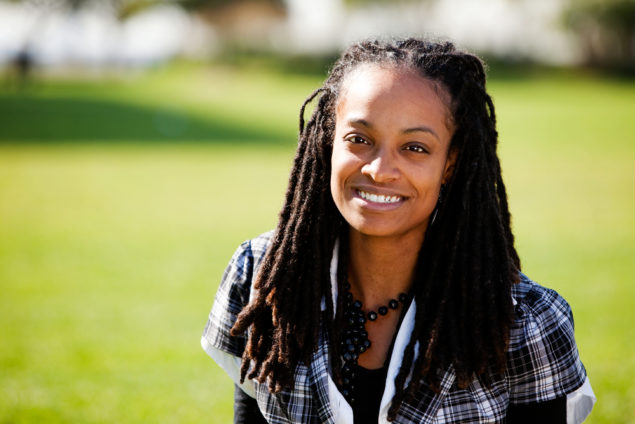What I Learned About Myself After Studying in the U.S.
Monday | April 18, 2016 | by Trishnee Bhurosy

Guest blog contributor Trishnee Bhurosy takes us through some of the lessons she learned while studying abroad in the United States. Read on for her takeaways—with advice you can use, too!
After living on the island of Mauritius all my life, coming to the U.S. for a doctoral program was a big change for me. Before I began my academic experience I had already achieved so much: getting good test scores, evaluating my academic transcripts, writing a strong statement of purpose, budgeting for application fees, and contacting potential advisors about research. But the biggest of these achievements is what I learned about myself once I moved to the U.S. It has now been six months since I left to explore my new home in Bloomington, Indiana.
Here are some of my reflections on what I have accomplished this year:
I Gained a New Level of Maturity
I have always been told that I was a very mature and responsible for my age. However, coming to live in the U.S. and being on my own helped me to grow significantly as an individual. It takes courage and patience to deal with the mental and emotional stress of settling into a new place that is far away from familiar people and places. Many are amazed that I made such a huge decision. My answer is always: “I did not think too much about it. I just did it by having faith in myself.”
I Made New Friends
After reaching my apartment in the U.S., I felt excitement mixed with nervousness. With Google Maps as my companion, I explored where I would study for several years: the School of Public Health. When I found myself in the building, I felt a great sense of accomplishment and felt proud to have made it. I also came across a flyer for a local group that helps international students settle in. I decided to attend one of their meetings the following day, where I met one of my current close friends. I realized it is important to have someone to count on when “home” is thousands of miles away!
I Developed a Research-Oriented Frame of Mind
As first-year Ph.D. student, the best advice I can give is to network both inside and outside your department from day one. This is especially helpful if you are looking for research positions or partnerships, where you can begin to lay the groundwork for your research project. Some of the best advice I have received during my Ph.D. program is to read and understand existing literature in my field. This has enabled me to identify existing gaps in literature and reflect on new ideas for how to embark on my own research.
I Found the Right Balance Between Studies, Work, and Social Life
I have come to realize it is essential to maintain a balance between my studies and personal life. It is important to take the time to go out and make new friends because trust me, there will be times you need the support of people going through similar experiences as you.
If you are an international student, give yourself time to adapt and understand your new culture. Do not get discouraged by the obstacles you face by taking it one day at a time. For example, to stay calm and focused I meditate frequently. I have also recently learned to knit!
I Gained Work Experience
I am grateful for the many opportunities I have enjoyed since arriving in the U.S.; I have been both a teaching and research assistant. Next summer, I will be an associate instructor, in charge of an entire course. Because of these jobs, I have learned to improve my communication skills, developed new statistical skills, and more.
In conclusion, I would advise all international students to make the most out of the opportunities available to them, do not be afraid of failure, and be willing to take on new challenges! Celebrate your uniqueness as an international student and be proud of your roots.
The views and opinions expressed in this article are those of the author(s) and do not necessarily reflect the official policy or position of World Education Services (WES).
